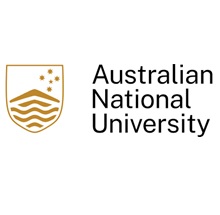About The Australian National University
College Info
Open research university Australian National University was founded in 1946. In 1960, it began offering undergraduate degrees after uniting with Canberra College. The institution is divided into four departments: the School of Physical Sciences, the School of Social Science, the School of Pacific Science, and the School of Medical Research. In 1954, the institution opened its first residence hall for faculty members and postgraduate degree candidates. ANU is renowned for its extracurricular and cultural offerings, which are supported by the University Council.
The university's campus covers a total area of 358 acres. Thousands of trees cover it, which is situated in Canberra Acton. Additionally, the campus received a second-place ranking as Australia's greenest institution. The university is home to four learned societies, including the Academies of Humanities, Science, Social Sciences, and Law. Six branches make up the library, which has access to millions of books and academic papers and is available to faculty and students around-the-clock. The university provides a wide variety of housing options for students, all located in a lively and diverse neighbourhood. On campus, there is a serene study environment for the pupils.
There are 7 colleges at the university. They are all interwoven with learning and research. The Council, which has 15 members, maintains the academic framework. The Australian National University offers undergraduate, graduate, and professional degree programmes.
Students have the option to select from a variety of disciplines based on their interests. Law and Legal Studies, Arts, Society and Culture, Natural, Physical and Environmental Sciences, Business and Commerce, Health and Medical Studies, Engineering, and Computer Science are just a few of the topics on the list. Additionally, knowledgeable personnel and professionals frequently visit the university, giving the students exposure and a wealth of information.
Jane Halton (Finance Secretary), Lisa Paul (Education Secretary), Don Brash (Former Governor of Reserve Bank of New Zealand), Geoffrey Nettle (Judge at High Court of Australia), Stan Grant (Political Journalist), and Jennifer Robinson are just a few of the notable alumni from the Australian National University (Human Rights Lawyer).
Australian National University Rankings
- #76 Universities Rankings - ARWU (Shanghai Ranking) 2021
- #27 World University Ranking - QS 2022
- #54 University Ranking - THE (Times Higher Education) 2022
- #56 Global Universities - US News & World Report 2022
Why Australian National University?
- Provides courses and programmes in a variety of academic fields.
- The feat of earning an ANU degree is highly regarded.
- Graduates from ANU join a select group of people from throughout the world.
- Give students the option of studying abroad and in Australia.
- The ANU community offers a wealth of resources and assistance to students.
- In the centre of Canberra, Australian Capital Territory, there is a university.
Australian National University Tuition Fees
| Courses |
Duration |
Tuition Fees |
| Medicine and HealthCare (1 Courses) |
4 year |
AUD 42960 |
| MBA (1 Courses) |
1.5 year |
AUD 45168 |
| Engineering (3 Courses) |
2 Year - 4 Year |
AUD 43200 - AUD 45168 |
| Science (4 Courses) |
2 Year - 3 Year |
AUD 33168 - AUD 43200 |
| Information Technology (IT) (2 Courses) |
2 Year - 3 Year |
AUD 42960 - AUD 45168 |
| Management (10 Courses) |
1.5 Month - 3 Year |
AUD 42960 - AUD 45168 |
ANU College International Admissions
On behalf of the Australian National University, ANU College provides diploma programmes, foundation studies, academic English preparatory courses, etc. Students may submit a paper application and the required supporting documentation. Include your signature, the date, and your contact information in the documents. Stamp or write, "This is a legitimate copy of the document examined by me." The previous organisation where the pupils had studied before must have its official stamp or seal. If chosen, the college provides an offer letter. The acceptance declaration must be signed by the applicant, and the document must be returned.
Admission Requirements
- Certified copy of academic transcripts from your high school
- Official transcripts of previously attended education institute (the documents should be translated into English from the certified translator)
- English language test score- IELTS, TOEFL, PTE
- Birth certificate
- Citizenship proof
- Passport
- Visa
The Australian National University English Proficiency Requirements for International Students
Foreign applicants must provide evidence of their English language skills. Within two years should have passed the exam. Australian National University College's minimum requirements are:
| Tests |
Scores |
| IELTS |
5.5 |
| TOEFL PBT |
527 |
| TOEFL iBT |
46 |
| CAE |
162 |
| PTE |
57 |
The Australian National University Highlights
| Type of University |
Public University |
| Number of Students |
10,000+ |
| Percentage of International Students |
50% |
| Annual acceptance rate |
47% |
| Graduation Rate |
87% |
| Employment Rate |
96% |
| Tuition fees for English Language Course |
AUD 5,300 |
| Tuition fees for Foundation Course |
AUD 31,500 |
The Australian National University Cost of Living
Below is a breakdown of the anticipated cost of living for international students. There is no set price for the costs, which could be high or low depending on the budget.
| Areas of Expenditure |
Costs/week (in AUD) |
| Accommodation |
250-550 |
| Food |
100-167 |
| Travel |
34 |
| Phone and Internet |
25-50 |
| Electricity and Gas |
41 |
| Stationery, Postage |
10 |

